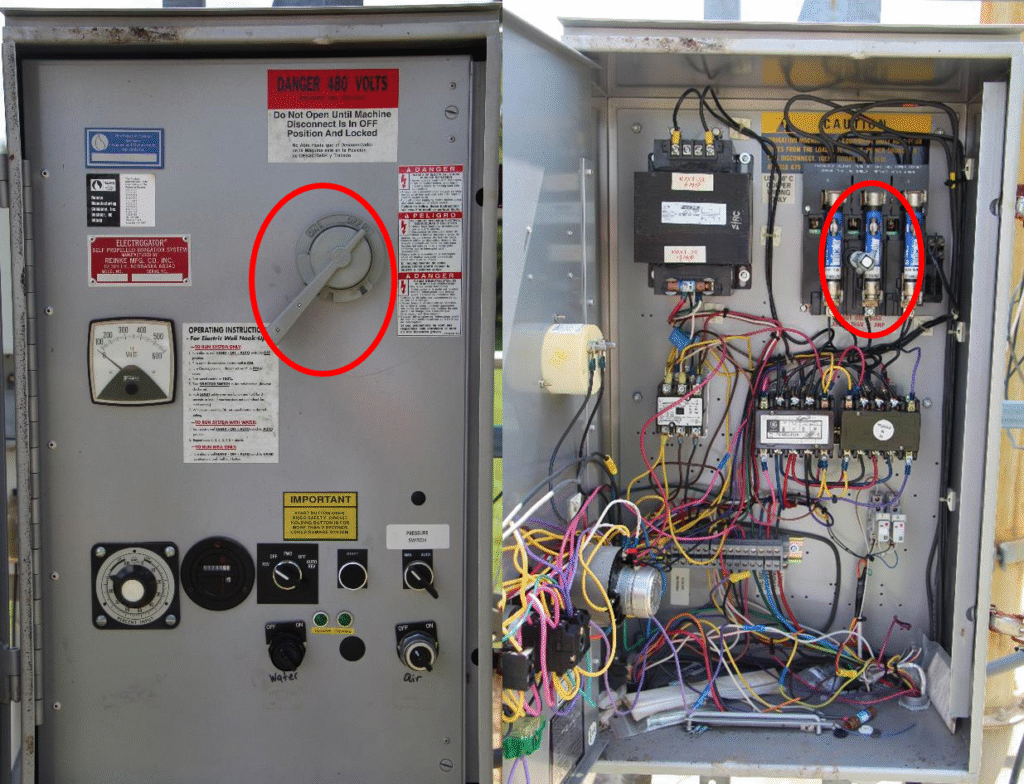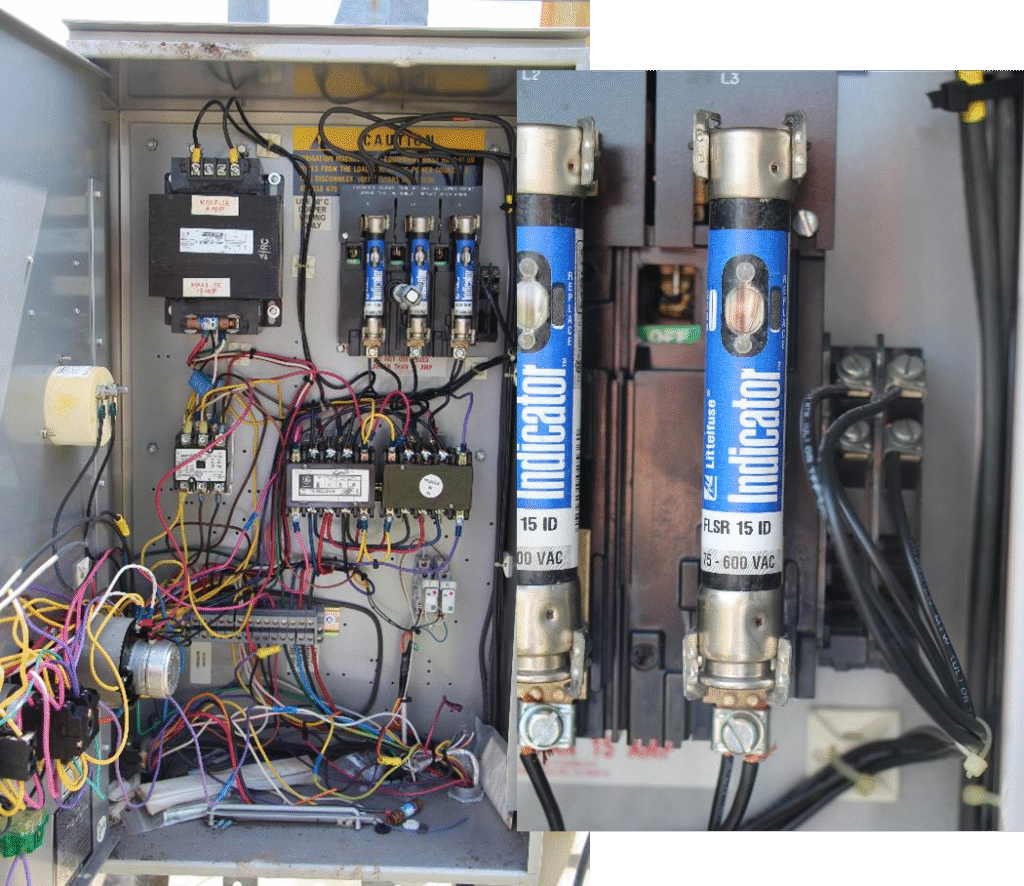By: David Hall, Phillip Edwards, Jason Mallard, Sarah Beth Thompson, Wesley Porter
It’s That Time of Year
If you have not already started up your irrigation system, you will be doing so very soon. If you have not operated your system since last season, now is the time to be very careful as you go to visit the site and start it up for the first time during 2025. Safety is a major concern when working around these systems as you are working with 480 three phase voltage!
First, always ensure that the main power to the system is off before troubleshooting the system. And by main power, I mean the line feeding the system not the power inside of the panel box. As shown below inside of the panel box, the off switch just opens the switch that allows power to flow from the source to the pivot control. It does not stop the power from entering the control panel. Thus, if there is something wrong with the system and there is a short, the structure of the system, including the panel box, towers etc. can be electrified.

As you approach the system, think about a few things:
- Assume the control box and structure is electrified until you determine otherwise
- On initial touch, use the back of your hand because three phase power causes muscle contraction
- If you grab the system with your open hand, you will be contracted to it, and anyone who touches you will also be contracted to you until the power to the system is shut off.
- If you touch it with the back of your hand, it will cause you to contract away from the system. When working around pivots, it is always good to keep a non-contact voltmeter handy.
Most, if not all, of our Extension Agents have one of these, and they can be bought for $15-$30 depending on brand and capability. A visual of how a non-contact voltmeter work is shown in the example picture below. A standard 120-volt breaker panel was used for this example, but the non-contact voltmeter will work the same inside of a pivot panel box. You can see that when the breaker is off power is not flowing through the circuit thus, the meter does not detect power and the light is not on, however, once the breaker is flipped to “on”, power is present on both sides of the breaker and the light comes on and an audible beep is heard. One of these non-contact meters can help you see if your panel box or structure is electrified without you touching it.

A critical component of irrigation systems that is usually overlooked is the grounding wire. It is the first and best defense one has against power surges or surges from lightning, especially on the newer fully electronic controllers. Just like the grounding wire on a house, this grounds the system. As shown below the rod should be either in the ground next to the concrete pad or directly in the pad. Ensure the wire nut is tight because over time, the expansion and contraction of the copper wire due to weather and electrical vibrations can loosen the nut.

Other Considerations on the Grounding Wire:
- Is the copper wire in place?
- Is the set screw to the ground in the control box tight?
- Is this copper wire intact? As shown below the copper wire has been hit by a mower and is just laying loose on the pad.

Always stand to the side of the panel box and main power to the system. If the fuses blow in one of these systems, they are not like a standard house or car fuse. These fuses can cause a gun-like explosion, and you do not want to be in the direct path. Remember, if by chance a fuse blows, it could be its time to give, but most likely there is an underlying problem that may need professional attention. On that note regarding professional assistance, anytime a service technician is present be sure to have the safety off and low-pressure switches inspected for faults.

Prime Real Estate for Snakes and Mice
A lot of our pivots and pumping stations end up look this picture over a long summer.

If your system has grown up and has a lot of weeds around either the pump or pivot point or both, it is critical that you use caution when you are working around the system for the first time. All sorts of critters like to use situations like this to hide, especially if the fields around the system have been tilled and pushed them out of their winter hiding spots.

In addition to snakes, mice and wasps love to use parts on the pivot to make nests. When opening your system for the first time, be sure to check carefully. As you can see below, field mice find control boxes to be a dry, sheltered spot for the winter – but this can become a problem if they chew on the wiring inside of the panel box.

As you begin operating your systems for the first time this season, use caution for grounded out systems. Critters may have made their homes in or around the pivots and pumping stations. In many cases, we can downplay some of the dangerous issues associated with irrigation systems, but caution should always be used when working around pivots and the electricity that powers them. We all have heard too many stories of incidents and accidents around pivots, where people have either been seriously injured or even killed. While we do not offer pivot troubleshooting and repair from UGA Extension, we encourage you to use a licensed dealer for most of these problems. Also, we want to remind you of the precautions that should be used with regard to all agriculture equipment.
